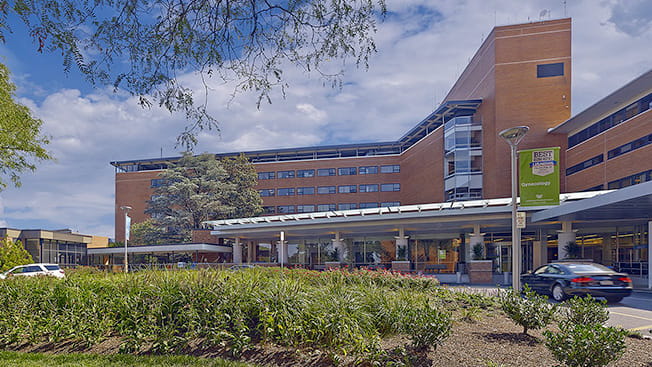LIMR’s Dessain creates first rapid diagnostic test to identify Delta variant, provides basis to test for future strains

Scott Dessain, MD, PhD, a professor with Lankenau Institute for Medical Research (LIMR), part of Main Line Health, and colleagues have created a groundbreaking rapid diagnostic test to successfully identify whether a patient with COVID-19 has the Delta variant. As the first rapid test to identify any of the COVID-19 variants, it provides the basis for detecting any future variants of concern.
Delta has been predominantly responsible for the recent wave of cases and deaths, arriving and spreading worldwide with unanticipated speed. Although the Delta wave may have peaked, the experience with the variant makes it critical to be able to create new rapid tests without delay.
“What is truly fascinating is how Delta has gone from being unreported a number of months ago to being the dominant strain worldwide,” said Dessain, the Joseph and Ray Gordon Professor of Clinical and Oncology Research chair at LIMR. “In this context, it’s critical to know if other viruses are capable of taking Delta’s place. Genetic studies suggest there will be strains that are more likely to evade immunity and spread faster. If one of those moves into a Delta area, such as ours, we need to be able identify it quickly.”
George Prendergast, LIMR’s president and CEO, credited Dessain and assistant investigator Rama D. Puligedda for moving swiftly to meet a critical need.
“This test stands to have positive ramifications nationally and internationally and it is because of the extraordinary work of Scott and Rama,” Prendergast said. “At the outset, scientists said this type of test was not possible. This is not just a success story for LIMR but for all of Main Line Health. We had invaluable collaboration from clinician colleagues who moved quickly to find patients willing to participate in helping us evaluate this new test’s effectiveness.”
The LIMR test is called an enzyme-linked immunosorbent assay. The plan is to adapt it to the lateral flow assay format, which is simple to use and can provide results in 10 to 15 minutes while the patient waits in the office, allowing the physician to act quickly.
“LIMR anticipates supplying chemical reagents to diagnostics companies involved in lateral flow assay and point-of-care testing that would not only incorporate them in their testing kits but create second-generation tests,” Prendergast said.
Currently, only genetic tests are available. Results can take several hours or overnight.
Lateral flow rapid test strips based on the same principle as LIMR’s assay are commonly used—the most widely known is the pregnancy test. The LIMR test works by detecting the presence or absence of a protein, or antibody, found on the surface of the Delta variant but not other strains.
The test is conducted using a nasal swab is used because even though someone may have a generalized immunity throughout their system, they might still be shedding virus from nasal membranes and not realize it.
LIMR’s ability to create the test received a jumpstart when colleagues at Thomas Jefferson University shared reagents already in the freezer of their research labs, allowing Dessain and Puligedda to rapidly clone the target antibodies.
“They saved months on this project for us,” Dessain said. “We’re really grateful to them. As an institute for medical research, we’re relatively small, but we’re deeply connected with other institutions such as Thomas Jefferson and its Sidney Kimmel Cancer Center. The resulting innovations benefit everyone.”
About Lankenau Institute for Medical Research
Lankenau Institute for Medical Research (LIMR) is a nonprofit biomedical research institute located on the campus of Lankenau Medical Center and is part of Main Line Health. Founded in 1927, LIMR's mission is to improve human health and well-being. Using its ACAPRENEURIALTM organizational model that integrates academic and entrepreneurial approaches, faculty and staff are devoted to advancing innovative new strategies to address formidable medical challenges including cancer, cardiovascular disease, tissue regeneration, gastrointestinal disorders and autoimmune diseases such as rheumatoid arthritis. LIMR's principal investigators conduct basic, preclinical and clinical research, using their findings to explore ways to improve disease detection, diagnosis, treatment and prevention. They are committed to extending the boundaries of human health through technology transfer and training of the next generation of scientists and physicians.
Contact
Phil Ellingsworth, Jr.Director, Communications
Office: 484.580.1182
EllingsworthPh@mlhs.org